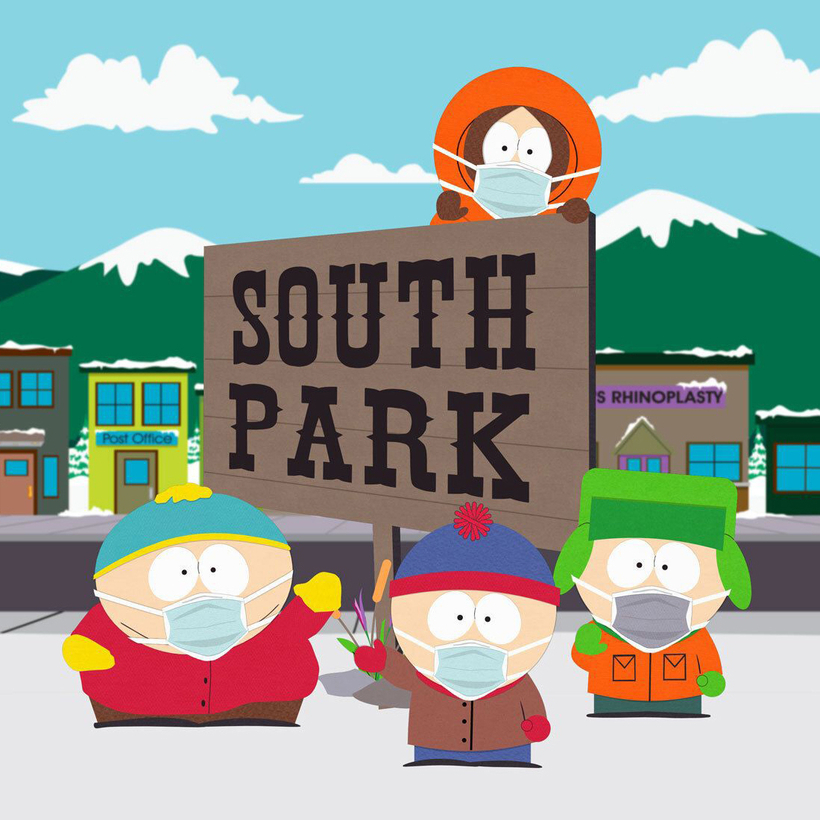I know plenty of highbrow auteurs, Ph.D.-accredited writers, intellectual philosophers, and hand-wringing cinephiles. But I don’t find any of them as dazzlingly smart as Trey Parker and Matt Stone.
Their show, South Park, celebrates its 25th year on the air this month. Over a two-and-a-half-decade marathon, Parker and Stone have revealed the world we live in through the hilariously distorted prism of their delightfully warped minds, serving up an uncensored balsamic reduction of the United States.
For those who have never seen the half-hour comedy, a) I pity you, since you’ve lived a less laugh-packed life, and yet, b) I envy you because you can plunge into the small-town Colorado world and discover it all now on Comedy Central and Paramount+. The show centers on a group of children in elementary school, a parka-clad posse that acts as a narrative nugget, emblematic of the world at large, clocking hypocrisies and calling out inanities.

Most frequently, they are challenging authority, from teachers to local governments to world leaders … and on to Jesus, God, and Satan. (And Saddam Hussein, who continues to remain the butt of jokes more than 15 years after his execution.) It’s the television antithesis of political correctness, even creating a new P.C.-enslaved principal of the school who takes wokeness to an extreme.
South Park has now been on the air for more than half my life, and there have been several laugh-as-medicine moments during which my brain healed from various injuries. One episode featured a goth-gang breakup that mirrored my own youthful attitude toward love; another echoed rage against those who use charitable causes to promote themselves socially.

Sometimes people are surprised I’m such a die-hard fan. What they don’t understand is that, despite the crude animation and often silly humor, Parker and Stone are like surgeons, taking an emotional scalpel to pop culture and delicately stitching a message that resonates. Like a mother who expertly stashes protein into her children’s pasta, the writers harness goofy elements (like a log of poo that magically comes to life as U2’s Bono) to lure in viewers. But behind them, incisive observations are lurking.
What truly impresses me about Parker and Stone are their kettlebell-size cojones. On South Park, no topic is off-limits: drugs, orgies, child molestation, school shootings, abortions, you name it. In a nation of thirsty fame-seekers who suck up to actors, they take them on fearlessly, satirizing George Clooney, Jennifer Lopez, Martha Stewart, Oprah Winfrey, Mel Gibson, Ben Affleck, Kanye West, Tom Cruise, Caitlyn Jenner, and countless others without a shred of mercy.

In the masterpiece “Pandemic Special,” a character named Randy Marsh recovers a memory of a drug-fueled blackout in China, during which he fornicated with a wet-market pangolin, thereby contracting the coronavirus and spreading it to the human population.
Parker and Stone have courted controversy (and even endured death threats) over the show’s depiction of the Prophet Muhammad and people with disabilities and obesity. But they are equal-opportunity offenders, willing to take on any race or religion. (A memorable episode on Scientology is my personal favorite. Along with Robert Lopez, Parker and Stone also co-wrote the long-running Broadway musical The Book of Mormon.) Which makes it feel so free and insane, like an unhinged, humorous version of The Purge where anything goes.
When I praise South Park online, I take heat for it, but like the creators, I don’t especially care. Parker and Stone hold up a carnival-fun-house mirror to America, and if you can look at their hysterical distortions without laughing, you were born without a funny bone.
To hear Jill Kargman reveal more about her story, listen to her on AIR MAIL’s Morning Meeting podcast
Jill Kargman is the author of Sprinkle Glitter on My Grave and Sometimes I Feel Like a Nut. She also created and starred in the Peacock series Odd Mom Out

